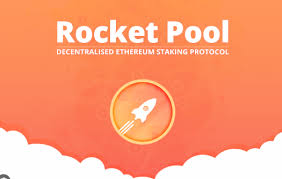
In the world of cryptocurrency, Rocket Pool, as a decentralized Ethereum ledger protocol, is gradually becoming a popular choice for participating in the Ethereum “Proof-of-Stake” system. By lowering the minimum subscription requirements, Rocket Pool enables more users with smaller Ethereum holdings to participate and enjoy potential gains and rewards. This article will introduce in detail the working mechanism of Rocket Pool, its security, and comparison with other platforms such as Lido to help you better understand this innovative platform.
How Rocket Pool works
The core of Rocket Pool lies in its decentralized network of node operators. Each node operator only needs to contribute 16 Ethereum (ETH), while the remaining 16 ETH are pooled from the contributions of other users to form a mini-pool. This setting significantly reduces the standard 32 ETH pool entry requirement, allowing users to only invest 0.01 ETH to participate.
Formation of the mini pool: In the Rocket Pool network, the 16 Ethereum contributed by the validator and the Ethereum pooled by users form a mini pool. This innovative structure not only lowers the barrier to entry, but also encourages more users to participate, and the Ethereum ecosystem expands.
Issuing rETH tokens
When users invest in Ethereum, they receive a token called rETH. These tokens represent a user’s share of Ethereum in the Rocket Pool and appreciate in value over time. According to the staking rewards obtained by the node operator, the value of rETH will continue to increase relative to ETH, and users can obtain the value obtained from the staking rewards by exchanging rETH back to Ethereum.
Risk management: Rocket Pool has adopted an effective risk management mechanism to protect rETH holders. Penalties incurred by node operators are deducted from their earnings, and any losses due to poor node performance are shared across the network, reducing individual risk. This mechanism provides users with a safer participation environment.
Introduction of Houston Upgrade: Rocket Pool’s Houston Upgrade introduces a fully on-chain DAO (pDAO) to the protocol, enhances governance capabilities, and allows node operators to perform ETH valuation. This upgrade enables flexible funding settings and improves security.
Protocol DAO (pDAO)
pDAO not only requires node operators to participate, but also allows them to manage protocol settings such as ETH minimum deposit amounts and deposit pool limits. This improvement ensures active governance and improves the overall security of the platform.
RPL withdrawal address: In the Houston upgraded version, a separate withdrawal address is also set up for RPL, allowing users to apply for RPL rewards without directly exposing their identity. These improvements further enhance the versatility and safety of rocket pools.
Rocket Pool’s security: Rocket Pool is widely regarded as a safe and reliable Ethereum tagging protocol, with a total value locked (TVL) of over $4.4 billion, proving users’ confidence in the stability of the platform. Although some potential risks were discovered during the security audit in April 2021, the Rocket Pool team quickly resolved these issues to ensure the security and reliability of the platform.
Comparison between Rocket Pool and Lido
Rocket Pool and Lido are both decentralized Ethereum staking platforms, but they differ in how users participate. Lido adopts a more centralized structure, relying on professional staking providers as node operators. After users stake Ethereum on Lido, they will receive stETH tokens, representing their stake and accumulated rewards.
In contrast, Rocket Pool offers a more decentralized model, allowing any Ethereum holder to become a node operator and supporting partial funding by users who do not meet the full 32 Ethereum requirement. Rocket Pool’s rETH tokens not only represent users’ bets, but also increase in value over time.
in conclusion
Rocket Pool provides a user-friendly solution for decentralized staking on Ethereum, lowering the barrier to entry to 0.01 ETH. Its innovative features, such as the protocol DAO for governance and rETH tokens for staking rewards, enhance user participation experience. Rocket Pool’s inclusive approach and strong security measures make it a solid choice for users looking to participate in Ethereum’s proof-of-stake system.
Whether you are a newbie or an experienced investor, Rocket Pool provides you with a safe, transparent and decentralized way to participate. Through Rocket Pool, you can not only participate in the Ethereum ecosystem, but also enjoy potential benefits and rewards. Let us witness the rise of Rocket Pool in the Ethereum world!